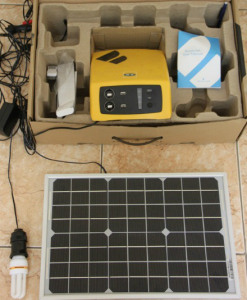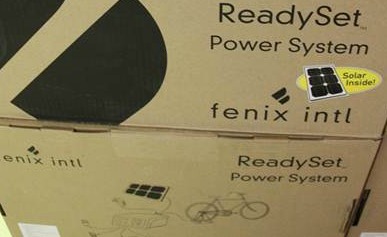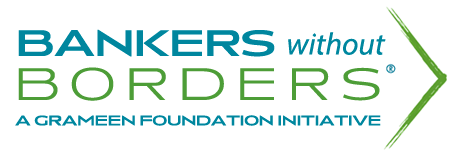Chris Smith and Gillian Evans are a husband and wife team volunteering in Uganda with Grameen Foundation through our Bankers without Borders® volunteer initiative. As Strategy Manager, Chris is responsible for business planning and Grameen Foundation’s relationship with MTN Uganda. Gillian is an Education Specialist, responsible for developing and applying training best practices in the field and helping build the training center of excellence in Uganda. Chris and Gillian live in Kampala with their two children and will complete their one-year volunteer term on July 31. You can read about their experience as a family living and working for Grameen Foundation in Uganda on their blog at www.smithsinuganda.com. As part of its Mobile Agriculture initiative, which leverages the power of the mobile phone to help fight “information poverty” among poor, rural farmers, Grameen Foundation has deployed more than 800 Community Knowledge Workers (CKWs) across Uganda in 20 districts, serving almost 62,000 farmers. Our CKWs use simple Huawei IDEOS smart phones that cost about $80 and run the Android software platform. This is a cost-effective and easy-to-use solution to get agriculture tips, market prices, weather forecasts and lots of other information to poor farmers deep in rural villages. A problem we encountered early in the development and deployment of the program was the lack of reliable electricity in those rural villages to charge the smartphones. When we launched the CKW program two years ago, we gave car batteries to the CKWs as a means of charging their phones – but this worked out about as well as you might imagine. We then found a partner in a San Francisco based startup called Fenix, which was designing and building solar-charging solutions for use by the rural poor. We've developed an excellent relationship with the Fenix team over the last year, and we are deploying the Fenix ReadySet solar-charging solution to all of our CKWs.
 The Fenix ReadySet allows our CKWs to charge their phones using a solar panel.
The Fenix ReadySet allows our CKWs to charge their phones using a solar panel.
The ReadySet is very easy to use and provides an additional income stream to the CKW, on top of enabling them to do their job delivering information to farmers and conducting surveys. With the ReadySet, the CKW can now build a side business by charging their neighbors and friends a small amount of money to recharge their phones, to run a haircutting service with electric hair clippers or enable a multitude of other micro-business opportunities that need reliable electricity. It also helps the CKWs personally, because now they can run a light bulb in their house, to enable their kids to read and do homework after the sun sets, to ensure greater security, and to reduce the use of kerosene and other fuels they typically burn for light. Watch this video to see CKW Annette talk about how she is using the ReadySet to help her deliver information to farmers, recharge her neighbors’ mobile phones, and create a better and more secure home life for her family.
We train CKWs on how to use the ReadySet as part of the initial training we provide when we first recruit them. In addition, our Network and Training team is now designing a training program for Fenix to train its other ReadySet customers, which could provide additional revenue support to Grameen Foundation by establishing a training center of excellence that would enable other organizations to hire our professional trainers.
 The ReadySet box shows how a bicycle can also be connected to charge the battery.
The ReadySet box shows how a bicycle can also be connected to charge the battery.
The system is pretty easy to use. The CKW unpacks the box, connects the wires and sets the solar panel out in the abundant sun to charge the battery. You can see an image of a bicycle on the box, which indicates that when it's raining or cloudy, the CKW can set his/her bicycle on a stationary rack and connect it to the ReadySet battery as a means of charging the battery even when there's no sunshine! A source of electricity like this is important even in the capital city of Kampala, where we have rotating blackouts known affectionately as “load shedding,” during which the power is frequently off in 8- to 12-hour rotating cycles throughout the city. My own family has tried out a demo ReadySet during power outages to light the family room, read and play cards, and it worked very well. We are very happy to ship out the next batch of ReadySets to eager CKWs in Kapchorwa, who will now be able to access a consistent supply of electricity and new potential income streams. This is all part of Grameen Foundation’s efforts to empower the poor with ready access to vital information and unique income-generating opportunities.

